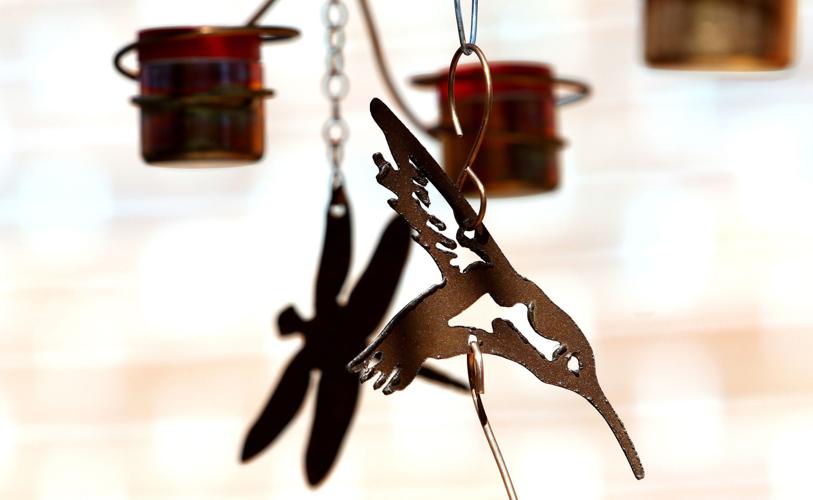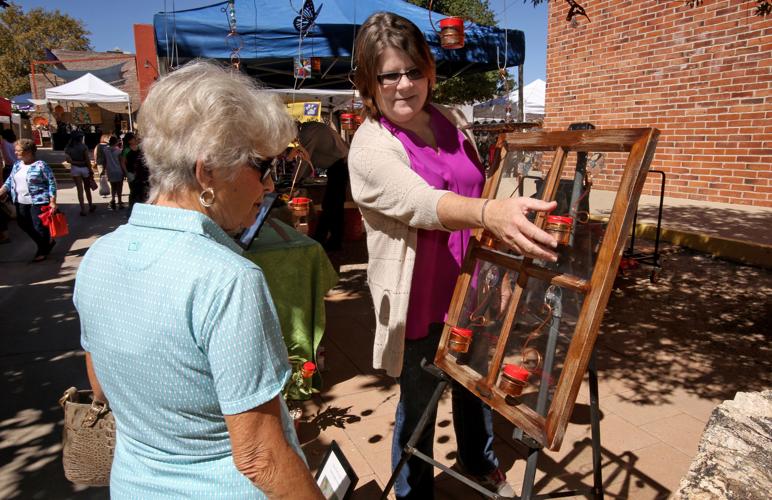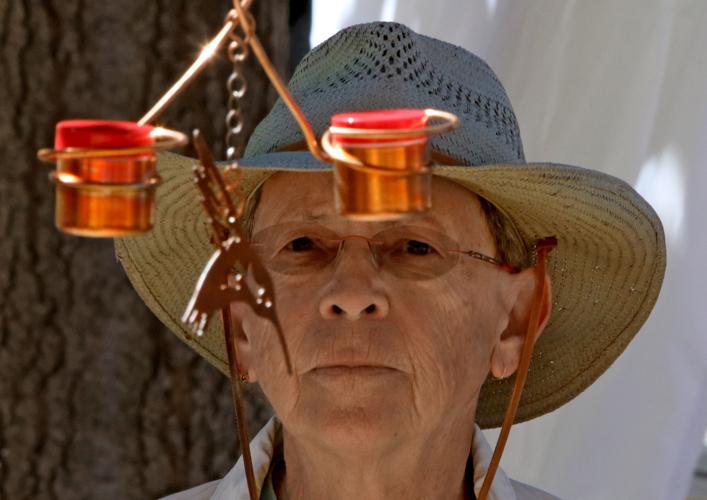Nancy Biggins’ success is tied to many things, but it started with her father being a tinkerer.
At her family’s home in Dunedin, Florida, a workshop in the garage included her grandfather’s old farming tools mixed with her father’s own collection. Biggins’ childhood playthings included lumber, nails and saws.
“He could build or fix anything and I was always included, if I wanted to be,” said Biggins. “I can’t ever remember a time I wasn’t out in the shop with him.”
By age 12, she was at liberty to use anything, including the torches she now uses to make feeders for her local business, Copper Hummingbird.
“I love the fact that my anvil is the one that my grandfather used in the 1920s and 1930s,” she said.
Biggins, 54, hasn’t always made her living this way.
Her longer career was in zoology, first in Florida and then, beginning in 1996, at the Arizona-Sonora Desert Museum, where she helped care for animals ranging from bears to birds.
About 10 years ago, she started noticing more and more bees gathering around the hummingbird feeders. Being mildly allergic, and also wanting to keep the nectar for the hummingbirds, she started looking online for feeders that would not attract or allow insects.
When she couldn’t find any, she picked up her tools.
You can guess what’s next.
Biggins retired from her job with the museum three years ago and has been creating the feeders full time since.
“I was really just a zoo keeper who got tired of being stung by bees,” she said. “I never intended to do this for a living.”
Her basic feeders start at $24 and go up to $200. Some have ant motes, some are made on hangers and all are designed to be easy to clean, she said.
Her sales have grown by 50 percent each year, and this year, as she moved to wholesale, she is on track to double her sales from last year. Her feeders are now available in 108 stores nationwide, and she’s started looking into finding a manufacturing partner.
At this time of year, some hummingbird lovers find their birds are having their nectar stolen by migrating nectar bats, so Biggins also makes feeders that are bat-proof.
“Starting in August, people start seeing that their hummingbird feeders are emptying overnight,” she said. “I’m thrilled with the bats, but a lot of people don’t want them around.”
Biggins used to attend art fairs every weekend, but this year is only planning on a few, including the Fourth Avenue Street Fair.
Kimberly Byrne-Agut, manager at Wild Birds Unlimited, 6546 E. Tanque Verde Road, has been carrying Biggins’ products for years and said her customers and the hummingbirds “adore them.”
“And best of all they are made by a local artist. We really try to support local businesses since we are one as well,” she said.
Bryne-Agut said Biggins is hard-working and takes pride in her work.
“Her word is golden. If she says she will get you an order by a certain time, you can bet it will be done,” she said.
Tucson artist Chuck Watkins agrees.
He met Biggins at an art show in Patagonia about five years ago and, as part of his work, takes photographs of birds so he can paint them.
Biggins’ feeders have helped him a great deal.
“I have a little hummingbird garden so I always get all the new feeders she comes out with,” he said. “All the hummingbirds love her feeders.”
He said the feeders hold just enough nectar for a day or two, and then they can be switched out for a fresh batch.
“They are very easy to use and clean,” he said. “I can see this company and product going places.”






